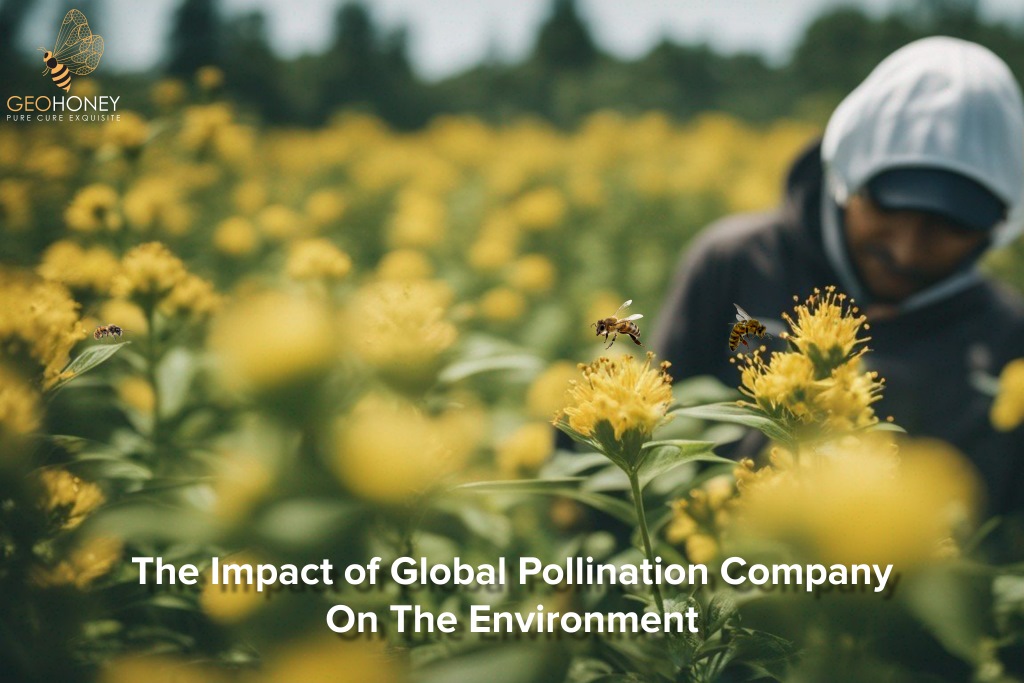- Tokyo: 14:28
- Singapore: 13:28
- Dubai: 09:28
- London: 05:28
- New York: 00:28
The Impact of Global Pollination Company on the Environment

Introduction
Global pollination company play a crucial role in our ecosystems and food production by facilitating the transfer of pollen from the male parts to the female parts of the same or another plant. In this blog, we will explore the impact of Global Pollination Company on the environment, with a particular focus on honeybees as essential pollinators. We will highlight both their benefits and potential liabilities.
The Importance of Honeybees as Pollinators
Honeybees are among the most important pollinators for maintaining wild plant diversity, ecosystem stability, crop production, food security, and human welfare. They contribute significantly to apiculture and food production by enabling fertilisation in plants through efficient pollination. Without honeybees' assistance, many crops would struggle to reproduce effectively.
The decline in honeybee populations poses ecological and economic risks. Reduced honeybee numbers can lead to lower crop yields and increased costs for farmers who need alternative methods like hand pollination or artificial means for reproduction. It affects global trade dynamics as some cultivated crops heavily rely on international exchange facilitated by efficient honeybee-mediated pollination services.
Global Pollination Companies
Global pollination companies have emerged as key players in the industry due to their expertise in managing large-scale apicultural operations that require extensive pollination services. These companies provide specialised knowledge about various species' reproductive needs while offering efficient solutions tailored to specific crops. Global pollination companies also come with certain considerations worth discussing.
Potential Benefits
Expertise: Global companies possess vast experience working across different regions with diverse flora.
Efficiency: Their ability to manage large-scale operations ensures timely and effective delivery of pollination services.
Technological Advancements: These companies often adopt advanced techniques like precision farming or drone-based distribution systems, which enhance efficiency even further.
Environmental Impact of Global Pollination Companies
It is not only important to acknowledge potential benefits but also to consider the potential environmental impact associated with global pollination companies practices.
Habitat Loss and Fragmentation
Global pollination company may inadvertently contribute to habitat loss due to land conversion for large-scale monoculture operations. This loss negatively affects native plant species diversity while reducing suitable habitats for many beneficial insects like honeybees, butterflies, bats, birds, etc., that play vital roles in ecosystem functioning.
To mitigate this impact:
Promote sustainable land-use practices: Prioritise preserving natural habitats alongside agricultural activities.
Encourage initiatives: Establish protected areas or create wildlife corridors to maintain connectivity among fragmented landscapes.
Pesticide Use
The excessive use of pesticides can harm not only target pests but also non-target organisms like honeybees or other beneficial insects involved in the process of pollination.
To minimise this risk: Advocate integrated pest management strategies: Reduce reliance on chemical pesticides by utilising biological control methods.
Educate farmers: About alternative approaches such as crop rotation or companion planting techniques that promote natural pest control mechanisms without compromising honeybee health.
Climate Change
Climate change poses challenges for both crops reliant on specific temperature ranges for growth and development, along with their corresponding specialised group of honeybees who assist them during fertilisation processes. Adaptation measures should include:
Research and develop resilient crop varieties: Capable of withstanding changing climatic conditions.
Implement strategies to mitigate climate change: Reduce greenhouse gas emissions and transition towards renewable energy sources.
Solutions and recommendations
To ensure sustainable agriculture practices while protecting honeybees and their habitat, the following recommendations are proposed:
Promote Education: Raise awareness among farmers, policymakers, consumers and the general public about the importance of honeybees as pollinators for food security and ecosystem health.
Enhance Collaboration: Encourage collaboration between global pollination companies, local communities, researchers, governments and NGOs to foster knowledge sharing on best practices in honeybee conservation.
Support Sustainable Agriculture Practices: Promote organic farming methods that minimise pesticide use while enhancing soil health and biodiversity.
Preserve Natural Habitat: Establish protected areas or wildlife corridors to maintain diverse habitats that support native honeybee populations.
Invest in Research & Development: Support scientific research aimed at understanding the complex relationships between plants, pollinators like honeybees, and environmental factors like climate change or land-use patterns.
Conclusion
Global pollination company play a significant role in ensuring efficient crop production through their expertise in managing large-scale agricultural operations involving essential pollen transfer services. It is crucial to balance these benefits by addressing potential negative impacts on the environment.
By promoting sustainable agriculture practices that reduce habitat loss & fragmentation along with pesticide usage while also addressing climate change challenges, we can help protect both our fragile ecosystems' integrity as well as secure reliable food supplies for future generations. Let us all join hands in supporting initiatives across continents aimed at preserving our invaluable honeybees homes!



